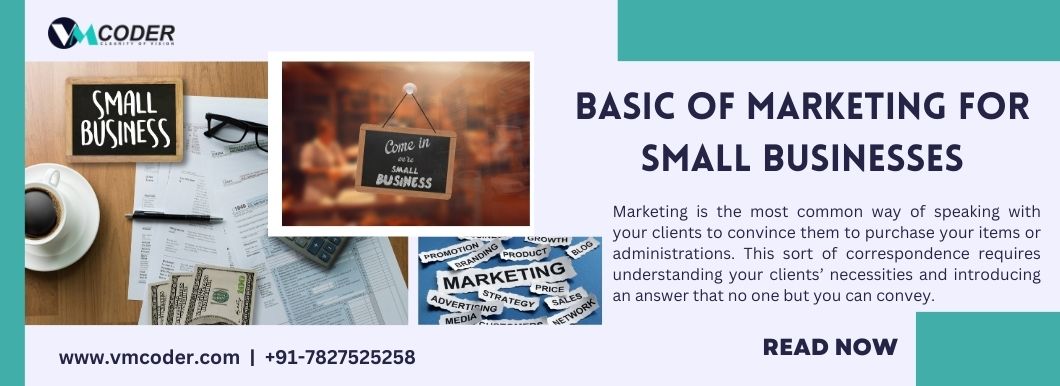Basic of Marketing For Small Businesses
Marketing is an essential aspect of any business that aims to connect with its clients and persuade them to purchase its products or services. This form of communication requires a deep understanding of customers' needs and presenting a solution that only your business can provide. As a small business owner, you have a plethora of marketing strategies at your disposal, each with its own target audience, reach, and cost. Crafting an effective marketing strategy for your business involves a careful blend of these tools, known as your business's marketing mix.
The marketing mix includes various approaches to attract and convince customers, such as paid advertising, event appearances, promotional campaigns, online traffic, social media engagement, and email promotions, among others. By adopting the right mix of marketing strategies, you can achieve the following goals:
-
Acquiring more customers: This involves expanding your customer base and increasing your market share.
-
Encouraging repeat purchases: Convincing existing customers to buy from you again and again, which helps build customer loyalty.
-
Upselling and cross-selling: Persuading customers to purchase more expensive or profitable products and encouraging them to buy complementary items.
-
Promoting profitable items: Focusing on products or services with higher profit margins to maximize your revenue.
The success of these objectives relies heavily on understanding and targeting your audience effectively. Not all members of the general population will become your customers, so it is crucial to direct your marketing efforts towards those who are most likely to convert. This targeted approach will save you time, money, and resources, as you'll be focusing on potential customers with genuine interest in your offerings.
To ensure your marketing efforts resonate with your target audience, consider the following factors:
-
Demographics: Understand the age, gender, location, and other key characteristics of your target customers to tailor your messaging appropriately.
-
Language and communication style: Use language and communication channels that resonate with your audience, whether formal, informal, or colloquial.
-
Digital platforms: Identify the social media channels and online platforms where your audience is most active to reach them effectively.
-
SEO and keywords: Research and use relevant keywords in your web content to improve search engine rankings and attract organic traffic.
-
Partnerships and sponsorships: Seek collaborations with organizations that align with your brand and can help expand your reach.
-
Promotions and discounts: Offer attractive deals and discounts that align with your customers' preferences and purchasing behavior.
-
Customer engagement: Communicate with your customers regularly through personalized interactions, such as email marketing, to maintain their interest and trust in your brand.
Email marketing is a powerful tool to nurture leads and maintain customer engagement. Once you have converted website visitors into leads, staying in touch with them through email newsletters, promotional offers, and blog updates can keep your business on top of their minds. Marketing automation can streamline this process, allowing you to manage your email campaigns efficiently and effectively.
Another effective technique is the use of compelling landing pages. A well-designed landing page offers valuable content or resources to visitors in exchange for their contact information. By providing something of value upfront, you increase the chances of converting leads into customers.
Additionally, hosting free informative webinars is an excellent way to showcase your expertise and establish credibility in your industry. Webinars provide a platform to offer valuable insights, answer questions, and interact with potential clients, making it a powerful lead generation tool.
Conclusion:
In conclusion, marketing is a fundamental aspect of any successful business, especially for small businesses aiming to grow their customer base and increase revenue. By understanding your target audience and tailoring your marketing strategies to meet their needs, you can achieve your business objectives effectively. Utilizing email marketing, compelling landing pages, and informative webinars are just a few of the many strategies that can help your small business thrive in a competitive market. Embrace the power of effective marketing, and you'll be well on your way to achieving lasting success.
Written by :
Shweta Bhatia
Leave a Reply
Your email address will not be published. Required fields are marked *






